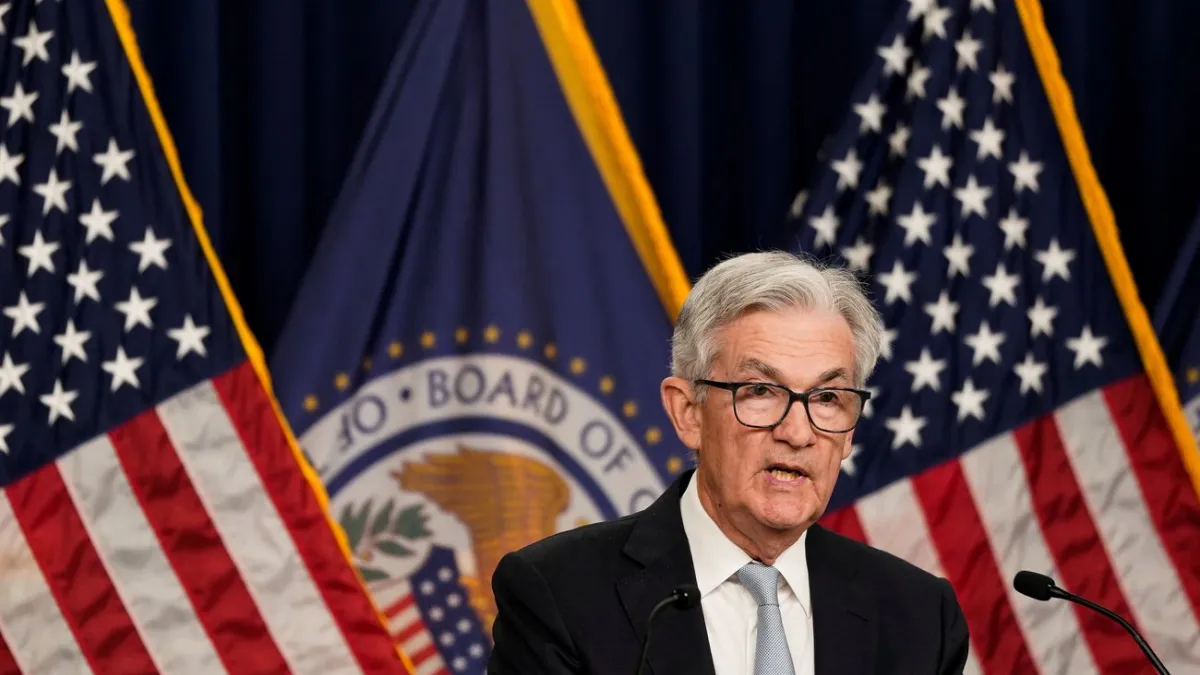
President Donald Trump’s tariff war could make it more difficult for the nation’s central bank to keep the lid on inflation, Federal Reserve Chair Jerome Powell said Wednesday.
In a speech at the Economic Club of Chicago, Powell said the central bank is waiting to see how the economy responds to Trump’s tariff regime, which is still developing and could take a variety of paths and produce a range of outcomes. But Powell left little doubt that the Fed sees the tariffs as unavoidably inflationary, even if the duration and size of the price-level disruption are unknown.
“Tariffs are highly likely to generate at least a temporary rise in inflation,” Powell said. “The inflationary effects could also be more persistent.”
Powell added that the Trump tariffs so far have been “significantly larger than anticipated,” which suggests that the economic effects will likely be larger, too.
The stagflation challenge: An increase in inflation would be particularly difficult to respond to if it is accompanied by a rise in unemployment — the stagflationary environment that many economists fear the tariffs could produce.
“We may find ourselves in the challenging scenario in which our dual-mandate goals are in tension,” Powell said, referring to the Fed’s two central goals of price stability and maximum employment. “If that were to occur, we would consider how far the economy is from each goal, and the potentially different time horizons over which those respective gaps would be anticipated to close.”
Underlining the potential difficulty of seeking to rein in price increases while also supporting employment, Powell noted that interest rate policy has contradictory effects on those key variables. “Our tool only does one of those things at a time,” he said.
In the meantime, the Fed will wait and watch to see what happens before making any policy changes. “For the time being, we are well-positioned to wait for greater clarity before considering any adjustments to our policy stance,” he said.
Powell’s tariff-related comments were not welcome news on Wall Street. The S&P 500 ended the day 2.2% lower and the Dow Jones Industrial Average fell nearly 700 points, or 1.7%.
A note on the deficit: Powell briefly touched upon the U.S. fiscal situation, as well. “We're running very large deficits at full employment, and this is a situation that we very much need to address,” Powell said.
At the same time, Powell noted that discretionary spending in the budget is not a major part of the problem — even if it is the main focus of congressional cost-cutting at the moment.
"All of this domestic discretionary spending, which is essentially where 100% of the conversation is, is small as a percentage of federal spending and is declining,” Powell said. “When people are focusing on cutting domestic spending, they're not actually working on the problem.”
U.S. debt is not yet unsustainable, Powell said, but the U.S. fiscal path is. To make progress, lawmakers need to consider the driving forces behind the rising deficit: ongoing imbalances between revenues and spending in major programs, including Medicare, Medicaid and Social Security, as well as interest on the debt.
“Those are issues that can only be touched on a bipartisan basis,” Powell said. “Neither party can figure out what to do without both parties being at the table. So that's critical.”